- Home
- Aharon Appelfeld
Until the Dawn's Light
Until the Dawn's Light Read online
ALSO BY AHARON APPELFELD
Badenheim 1939
The Age of Wonders
Tzili
The Retreat
To the Land of the Cattails
The Immortal Bartfuss
For Every Sin
The Healer
Katerina
Unto the Soul
Beyond Despair: Three Lectures and a Conversation with Philip Roth
The Iron Tracks
The Conversion
The Story of a Life
A Table for One
All Whom I Have Loved
Laish
Blooms of Darkness
This is a work of fiction. Names, characters, places, and incidents either are the product of the author’s imagination or are used fictitiously. Any resemblance to actual persons, living or dead, events, or locales is entirely coincidental.
Translation copyright © 2011 by Schocken Books, a division of Random House, Inc.
All rights reserved. Published in the United States by Schocken Books, a division of Random House, Inc., New York, and in Canada by Random House of Canada Limited, Toronto. Originally published in Israel as Ad Sheya’aleh Amud Hashachar by Keter Publishing House Ltd., Jerusalem, in 1995. Copyright © 1995 by Aharon Appelfeld and Keter Publishing House Ltd.
Schocken Books and colophon are registered trademarks of Random House, Inc.
Library of Congress Cataloging-in-Publication Data
Appelfeld, Aron.
[’Ad she-ya’aleh ’amud ha-shahar. English]
Until the dawn’s light / Aharon Appelfeld; translated by Jeffrey M. Green.
p. cm.
eISBN: 978-0-8052-4300-0
1. Jews—Austria—Fiction. 2. Austria—History—1867–1918—Fiction. 3. Jewish fiction. I. Green, Yaacov Jeffrey. II. Title.
PJ5054.A755A6313 2011 892.4’36—dc22 2011007286
www.schocken.com
Cover photograph © Pete Turner/Getty Images
Cover design by Linda Huang
First American Edition
v3.1
Contents
Cover
Also by Aharon Appelfeld
Title Page
Copyright
Chapter 1
Chapter 2
Chapter 3
Chapter 4
Chapter 5
Chapter 6
Chapter 7
Chapter 8
Chapter 9
Chapter 10
Chapter 11
Chapter 12
Chapter 13
Chapter 14
Chapter 15
Chapter 16
Chapter 17
Chapter 18
Chapter 19
Chapter 20
Chapter 21
Chapter 22
Chapter 23
Chapter 24
Chapter 25
Chapter 26
Chapter 27
Chapter 28
Chapter 29
Chapter 30
Chapter 31
Chapter 32
Chapter 33
Chapter 34
Chapter 35
Chapter 36
Chapter 37
Chapter 38
Chapter 39
Chapter 40
Chapter 41
Chapter 42
Chapter 43
Chapter 44
Chapter 45
Chapter 46
Chapter 47
Chapter 48
Chapter 49
Chapter 50
Chapter 51
Chapter 52
Chapter 53
Chapter 54
Chapter 55
Chapter 56
About the Author
1
THEY MOVED FROM train to train, sped past little stations, stopped at level crossings, and set out again with a rush across broad, flat expanses. It all transpired quickly and with frightening precision, as though they were no longer their own masters but in the hands of the railways, which treated them mercifully and moved them from place to place, almost without pain.
Otto was already four, and his mother regarded him as a big boy. She spoke to him and explained things to him that he certainly couldn’t understand. Her long and convoluted sentences perplexed him, but Blanca was sure he grasped her intention, and she would go on and burden him with more words. True, Otto asked pertinent questions, not because he understood what was happening, but because he was frightfully logical. Blanca, who was proud of his consistent thinking, was afraid now that he would trip her up. To distract him, she told him about things that never were, toyed with his limited memory, and promised him that before long they would get to a magical place.
“Where are we going, Mama?” he kept asking.
“To the north.”
“Is it far from here?”
“Not very.”
“Is the north in the country or in the city?”
“The north is up above, my dear.”
In her heart she knew she mustn’t lie; the boy was sensitive to contradictions. Still, she deceived him, distracted him, and concealed information. Even worse: she made him promises she couldn’t keep. Thus she became the accomplice of the speeding trains: together they confused him.
After a week of displacements, Otto stopped pestering her. He slept and barely poked his head out of his coat. Blanca was upset: perhaps his dreams were showing him what she wanted to keep from his sight. She thought that despite her efforts he had figured something out, and that the dream would turn his guess into a certainty—the thought disturbed her. She buried her face in her hands, the way her mother had done when headaches assailed her.
Otto sank ever deeper into sleep, and his face was relaxed. What she would do, and where the trains would lead them, Blanca still didn’t know. The summer light was full. The sky was blue, and the fields were yellow and spread out over the low hills. The bright view brought to mind the long vacations she had taken with her parents. They were so far away now, it was as if those vacations had never taken place.
When Otto woke from his sleep he was pale, and he immediately started vomiting. In his infancy he used to vomit, but since then he hadn’t complained about stomachaches or vomited. Now he shuddered in her arms as if fleeing from a nightmare.
“We’ll get off here,” said Blanca, and they got off right away.
It was a small village, with wooden houses scattered amid greenery.
“This is it,” she said, as if they had reached a safe haven.
“And there’s a river here, Mama.” Otto opened his eyes wide.
“I assume so, dear,” she guessed, not knowing if she was right. Not far from the station the famous Dessel River flowed energetically. Its clear, gushing waters were well-known.
“Mama!” Otto shouted in astonishment.
“What?”
“Let’s go rowing on the river.”
The word “river,” which Otto pronounced very sweetly, moved her, and she hugged him and kissed him on the forehead. A house for rent was easily found, a little wooden house overlooking the river, wrapped in vines and willows, far from the main road. Inside, darkness reigned, and dried herbs perfumed the air. The landlady, a pleasant-looking elderly woman, said, “Enjoy yourselves. This was my house once. Since my husband’s death, I’ve been living with my daughter.”
“When did your husband die?” Blanca asked.
“Two years ago. At the end of June it will be two years.”
“I’m sorry.”
“That’s how it is. What can I do?”
After showing them the secrets of
the house, the old woman asked, “And where are you from?”
“From Vienna,” Blanca lied.
“God Almighty,” said the woman. “All during my youth I wanted to go to Vienna.”
“And you never got there?”
“Just once, for an operation.”
“Happiness doesn’t dwell where we imagine it.” Blanca repeated what her mother used to say.
“How true,” said the old woman, and she turned to go. She had cultivated a vegetable garden next to the house, and she placed it, too, at her tenants’ disposal.
“You can pick to your heart’s content.”
“Thank you,” said Blanca. She was so moved that she hugged the old woman.
Thus the dizziness was halted for a moment. They got up early, ate breakfast, and went down to the river. The river, they found, actually didn’t rush. It flowed, slow and clear, and carp swam lazily at the bottom, as though to avoid the danger awaiting them up above. Blanca and Otto swam together for hours, sometimes until sunset. Blanca, finding she could easily buy dairy products from the neighbors, filled the pantry with good food, and at night they would split open a watermelon, sitting and chatting until Otto collapsed on the mat and fell asleep.
But, finally, the blow fell.
“Mama!”
“What?”
“Where’s Papa?”
True, she had expected it, but her tongue cleaved to her palate. Why are you pestering me? she almost said. But she quickly recovered and murmured, “He’ll surely come.”
“Here?”
“I’m doubtful that he’ll come here, though.”
“What’s ‘doubtful’?”
“It’s a promise, dear.”
Otto’s sensitivity to words always scared her. Other children, she had noticed, also asked the meaning of a word, but Otto’s questions had the sharpness of a razor.
“Nobody knows what those darling creatures are capable of.” She remembered her grandmother Carole saying that.
Three weeks ago, or, more precisely, seventeen days ago, Blanca had fled with Otto. Since then: running, yearning, and frightening joy. She didn’t reveal a thing to him. During the last nights at home, before going to sleep, she had promised him that soon they would cruise down rivers, climb high mountains, and buy ice cream at stands. Night after night, she would secretly share her fantasies with him. With Adolf she had behaved differently, obeying him like a beast, and when he came home from work in the evening, she would serve him his supper without a word. The obedience made no impression on him. If something didn’t please him, he’d throw it away. Blanca didn’t ask questions or argue. She kept repeating to herself that there were things it was worth bearing shame for.
Blanca had met Adolf in high school. He was a solid, handsome lad, but not an outstanding student. The teachers liked him because of his strength and childlike appearance. Blanca married him in haste, after she graduated. Her parents weren’t pleased, but they didn’t meddle. Only Carole, her mother’s mother, hearing about her marriage to a gentile, didn’t restrain herself. Grandma Carole was a simple woman, hardy and irritable. If she didn’t like something, she condemned it, and if people annoyed her, she cursed them. She made allowances for no one. Confident in her beliefs, she would sometimes say things that shocked the family. Years earlier, when another of her granddaughters married a gentile, she had said, “A daughter of Israel who shows contempt for the Torah won’t live long. The Torah was given to us to observe, not to hold in contempt. God in heaven sees everything and knows everything and won’t forgive.” That was before she went blind. After that, she became even more zealous. All the family’s ups and downs reached her ears; she missed nothing. And when something seemed wrong to her, she would repeat, “The Torah was given to the Jews so they could observe it, not so they’d hold it in contempt.” Everybody expected her to die, but for some reason death didn’t claim her. After she went blind, her other senses grew keener and her reactions were sharper. She would make her pronouncements with fierce vehemence, sometimes coarsely, and rather than shaming, her words caused pain.
“Slut,” she hissed, when she learned of Blanca’s marriage.
2
DAY BY DAY the light grew stronger, and red poppies covered the riverbank. The sight of the flowers reminded Blanca of summer vacations when she was Otto’s age and her parents were young. Even then the fear of death would assail her in the middle of the day. She kept this a secret and told no one. Sometimes, before going to sleep, she would ask her mother not to put out the light. Her mother, a thin and fragile woman, used to whisper, “There’s nothing to be afraid of, dear; darkness isn’t anything, just a color. At your age it’s not fitting to sleep with the light on.”
In time Blanca confessed: “I’m afraid.”
“These are just momentary fears, dear. They’ll pass very quickly.”
Later, the fear of death left her, but another fear came to dwell in its place, a fear of people. Blanca would hide in the closet or under her bed, and Johanna, the housekeeper, would get down on her knees and whisper, “Where’s my squirrel, where’s my sweet child?” Hearing her whisper, Blanca would chuckle and emerge from her hiding place.
Then Blanca’s mother fell ill. She was just thirty-five, and Blanca was still a young girl. For years they dragged her from sanitarium to sanitarium, from doctor to doctor. She would return from those trips wan and pale, her eyes sunken into their sockets, an involuntary smile trembling on her lips. Blanca wasn’t allowed to go into her room. She would stand in the doorway and stare at her.
“How are you feeling, dear?” Her mother would address her as though she were no longer in this world.
“Fine, Mama.”
“And how’s school?”
“I got ‘Excellent’ on my arithmetic homework.”
Upon hearing those words, her mother would close her eyes and spread her hands on the white sheet.
After a while Blanca’s mother no longer returned home, except for short intervals. During vacations, Blanca and her father used to go to the mountains to visit her. Those hasty visits, once in the winter and once in the summer, were seared in her memory with burning clarity. In the summer, her father would rent a room near the sanitarium, and they would visit her mother together twice a day. On warm days, her mother would get out of bed, and they would sit in the garden. Blanca noticed that the flower beds were well tended and the grass was trimmed. Sometimes Blanca would show her mother her notebooks. They were neat, and the teacher’s “Excellent” sparkled in them.
Blanca’s father was a tall, thin man of few words. He would answer all of Blanca’s questions distractedly. “True, you’re right,” he would say. He made his living from a stationery store, which he and a cousin ran as partners. The cousin, Dachs, a fun-loving bachelor, was his total opposite. Whenever they were together, they quarreled. More than once they were about to sell the store and dissolve the partnership, but at the last minute they would make up, and everything reverted to the old order. So it was for years. Blanca’s father hated the store, and his face expressed that hatred. With every passing year his face grew more wizened.
Grandma Carole didn’t like Blanca’s father. She used to say that all the evils that had befallen her daughter were only because of him. Once, when Blanca was five, Grandma Carole spoke harshly to him about his squandered inheritance and about the way he neglected the store and didn’t support his family. Blanca’s father sat in an armchair and didn’t utter a word as Grandma Carole stood there and listed transgression after transgression. Finally he rose to his feet and, shouting louder than she had ever heard anyone shout, said, “Get out of here, you witch!” Grandma Carole responded in an even more terrifying way: she stretched out her neck and screamed, “Here’s my throat. Cut it!”
For a long time after that episode, Blanca was not at ease in her father’s company. Her mother tried to make her forget that dreadful episode, saying that it was only a momentary outburst
. Papa was a good man, she said, one who liked people, and he wouldn’t hurt a fly.
3
“MAMA!” OTTO CRIED OUT.
“What, dear?”
“How old are you?”
“Twenty-three.”
“So old?”
Blanca laughed, hugged him, and kissed his head.
They’d been living in this enchanted dwelling for a week now. The low ceiling was held up by thick wooden beams. The windows in the rooms were long and narrow, except for the kitchen window; it was broad and protruded outward, bringing the garden and the river inside. During the long afternoon hours, Blanca sat in the kitchen and happily surveyed all the silent things surrounding her. When she stood up, she felt heavy, and her legs wouldn’t take her far.
At that hour Otto would be bent over his treasures, moving them from place to place. Every day he brought pebbles, dry branches, and shells home from the river. He would place them in baskets that were scattered about the house. Later, he would gather them around him. Blanca didn’t disturb him. She let him immerse himself in his magic. Sometimes he would get tired in the middle of some enchantment, sink down, and go to sleep. When the darkness fell, she would pick him up in her arms and lay him on the broad bed.
It was summer, and the sunset glowed until late at night. Sometimes, for reasons that Blanca didn’t understand, Otto would put aside his magical toys and come to sit at her side. Blanca would split open a watermelon or rinse a plate of cherries, and they would eat them together. The evening light would crown his forehead and eyes. His questions were many, little expressions of astonishment.
“Why did the Jews kill Jesus?” he asked one evening, surprising her.
“Who told you that nonsense?” The question made Blanca jump up.
“Aunt Brunhilde.”
“It’s absolute nonsense. As for Aunt Brunhilde, she’s a bitter, fanatical woman who thinks that anything that isn’t Christian is worthless. Fanaticism is despicable, and we must always condemn it. Everyone should live according to his own faith, and nobody should criticize someone else’s life. You understand me, dear, right?”
Blanca didn’t usually raise her voice. Her patience with Otto was limitless. She listened to his questions attentively and only made comments that would enlarge his mind. But this time his question annoyed her. Otto was surprised by her reaction.

 Long Summer Nights
Long Summer Nights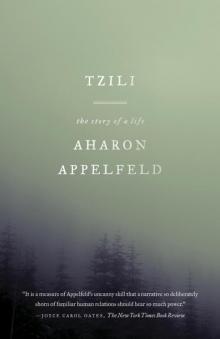 Tzili
Tzili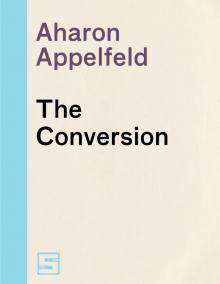 The Conversion
The Conversion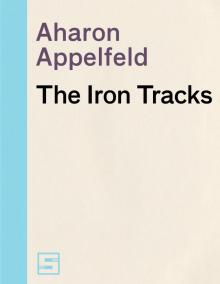 The Iron Tracks
The Iron Tracks All Whom I Have Loved
All Whom I Have Loved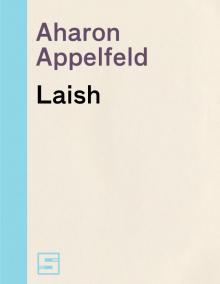 Laish
Laish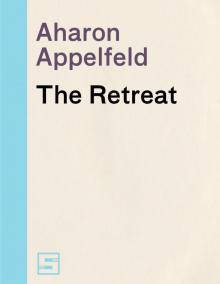 The Retreat
The Retreat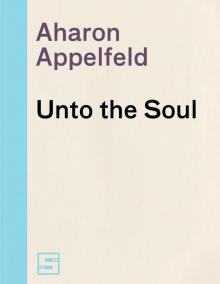 Unto the Soul
Unto the Soul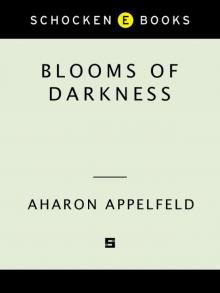 Blooms of Darkness
Blooms of Darkness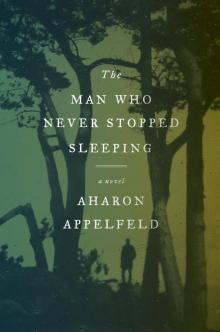 The Man Who Never Stopped Sleeping
The Man Who Never Stopped Sleeping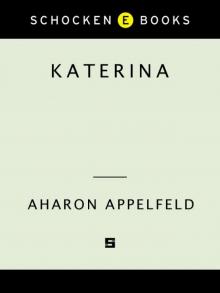 Katerina
Katerina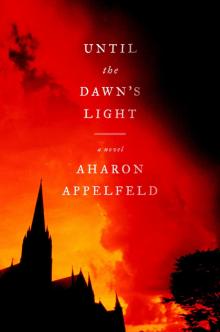 Until the Dawn's Light
Until the Dawn's Light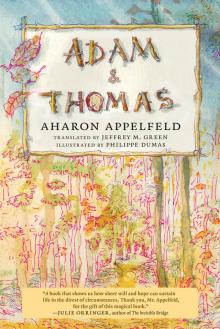 Adam and Thomas
Adam and Thomas Suddenly, Love
Suddenly, Love